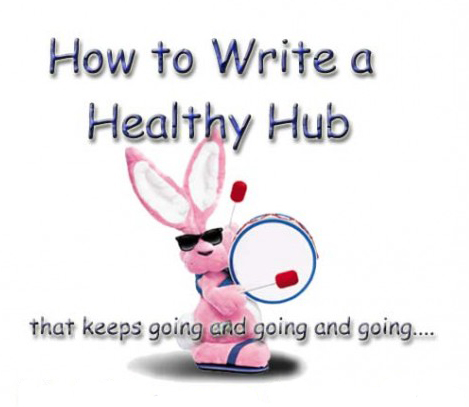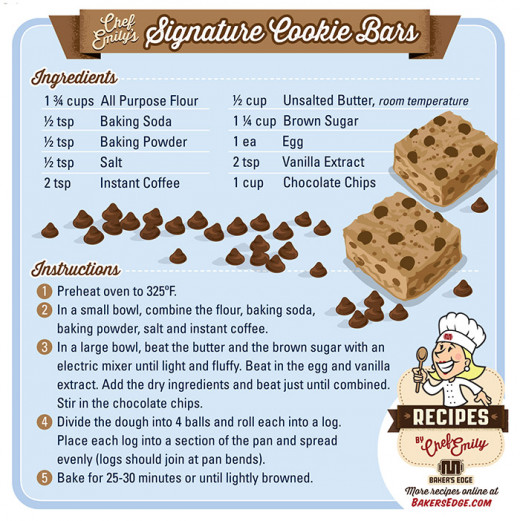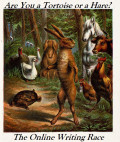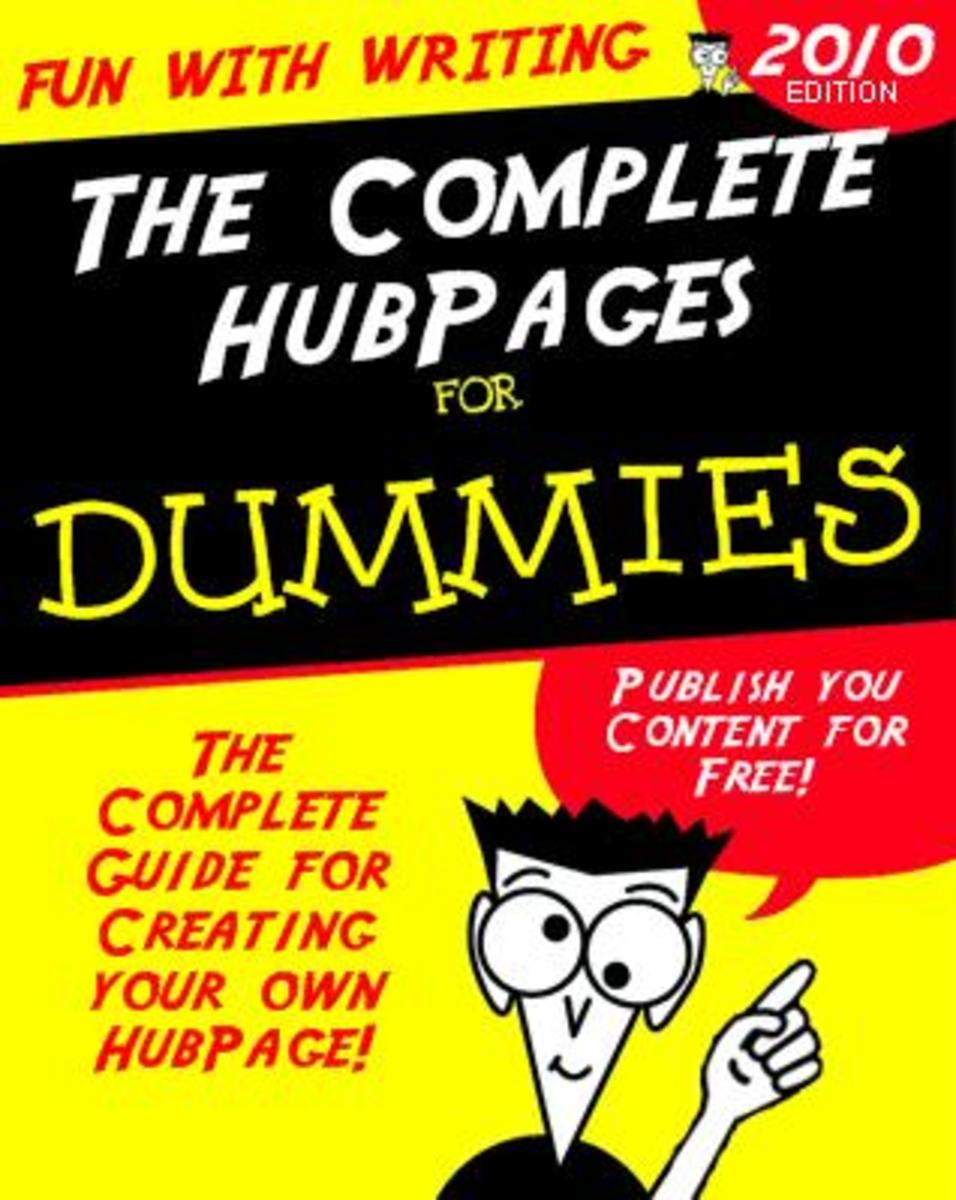How to Write a Healthy Hub

Don't judge a book by its cover
Most readers would presume by the title of this hub, that I would be writing about health products, healthy eating, diet and exercise, lifestyle changes, health care, or another of the many topics under the health umbrella. However, that assessment wouldn't be exactly accurate. There is another meaning for a 'healthy hub', and it too takes diet and exercise into consideration, although on a slightly different level.
For those of you who might be a tad confused by my intro, allow me to elucidate.
A healthy hub is one that is robust, entertaining and informative, not overly lean or fat, definitely not sickly sweet with sentiment, or bitterly controversial. A healthy hub can endure the slow summer stretch and still bring in the readers or clicks, (whichever venue you write for,) and keep going for as long as it remains published.
Retelling the tale
Have you ever read or heard something over and over, but still don't quite get the message? Sometimes, it just takes a rewording for everything to click into place and give you that 'Aha' moment. (That's my story and I'm sticking to it!)
There are hundreds of articles online, not to mention many hubs, each one informing the readers about SEO, content, keywords and other search engine techniques that are useful and in most cases, necessary to drive traffic to our written creations.
If you are anything like me and have trouble understand some of the terminology, it might be a good idea to read a few different hubs about search engine optimization. Sometimes, seeing or hearing something told a different way is all it takes to understand it. So don't worry about how many different articles are published about your topic...your's will be unique.

A simple recipe
The key to any good recipe is simplicity. (I'm sure this can and will be debated, however, again, this is my story and I'm sticking to it!) Choose your ingredients wisely and always test your recipes. Keep in mind that not everyone is a Julia Child or Stephen King, however, with information, practice and patience, everyone can produce a mouth-watering meal or riveting article.
Choosing your topic
What you cook depends on what you fancy at that particular moment - hearty, meaty, vegetarian, sweets, soups, sandwiches, the list goes on. The same can be said for topics. I'm always asked, what should I write about?
It doesn't really matter what you write about, it's how you write it that matters. What makes or breaks an article is what you do with the content. Has anyone ever searched for chicken recipes,(98,800,000 results) or chocolate (743,000,000 results) and actually looked at the number of results for those words? This doesn't even take into consideration what changing or adding a single word can do.
But for those of you who are still struggling to find a topic that people want to read, here are a few that are searched for.
- How-to articles - 3,790,000,000 results
- DIY (do it yourself) - 232,000,000 results
- Self Help - 1,180,000,000 results
- Recipes - 500,000,000 results
- Gardening - 221,000,000 results
Do you see where I am going with this? I will say it again...It really doesn't matter what you write about, it's how you write it that matters.
Content
Almost everyone has heard or read the words - "Content is King". But not everyone understands the meaning of that phrase. Mainly, it means that you need good, solid information, good grammar, spelling and sentence structure. Not something that looks (or is) like an article that has the adjectives changed to fool the search engines into believing it is original. Using someone else's words is simply rehashing what has already been written, no matter how you spin it!
However, when nearly everything has already been written about our chosen subject, how do we come up with original content? Simply put, we don't necessarily need new material, we just need a different, intriguing slant on the information that we already have. Use your own words, descriptions, and perspective. (Similar to what I am doing right now. I'm not telling you ground breaking, new information, Hopefully, I'm just putting the information into a different context.)

SEO mumbo jumbo
Not everyone understands SEO (search engine optimization) or how to do it, but nearly everyone understands how to search online for information. You simply type in what you are looking for, and presto, Google, Bing, Yahoo, or another search engine spits out pages and pages of websites or articles with the words you typed.
Granted, not all of them pertain to what you are looking for, but they all have one thing in common. They all contain the words you used. Those words are called keywords, and they have only one purpose - to search the most popular or sought after sites for information.
You wouldn't cook or bake something without knowing for how long or at what temperature, (well most of us wouldn't,) and the same principal applies to your writing. You want people to find your creatively, original, riveting articles...right? For that to happen, you need to point the way, and to do that, you need to use keywords. Simply add relevant search terms to your article, whether in the body, headline, or here at Hub Pages, on the sidebar under tags and summary, or all four, and voila, now there is a way for readers to find you.
Note: *It doesn't hurt to be creative with your title or keywords, just keep in mind that you don't want to 'over' exaggerate or outright lie about what your readers will actually find. Don't use a keyword for 'making soap' when your article is about soap-stone carvings.

Add your 'voice' and stir
The term 'voice' is another way of saying 'flavor'. Everyone knows about flavor, but many writers don't relate that word with writing. Flavor is key when used to describe food - the word brings an anticipation of mouth-watering delight. Voice to writing is the equal of flavor to food.
Voice gives the written word life and keeps the reader coming back for more, the same way sweets or savories keep us hooked on our favorite snacks. Very few readers are excited enough to slog through medical, technical or mathematical textbooks. Why? Because they tend to be dry, dusty, boring tomes that are guaranteed to give you a good nights sleep five minutes after cracking the cover.
However, the thought of a new Stephen King, J.K. Rowling, Dean Koontz, or V.C. Andrews novel (insert your favorite author here,) will have people lining up around the block in the hopes of snagging one before they are sold out. All because of voice.
That is what makes a timeless, evergreen hub, ever green! Remember how many chicken recipes there are? But what makes a chicken dinner timeless and mouth-watering is the flavor! All the ingredients come together to produce a meal that everyone who eats chicken will enjoy and talk about for years.
The same holds true for articles with voice. So the next time you sit down to write, follow this simple recipe, making sure to add some flavor and you will have healthy articles that keep going and going and going...








